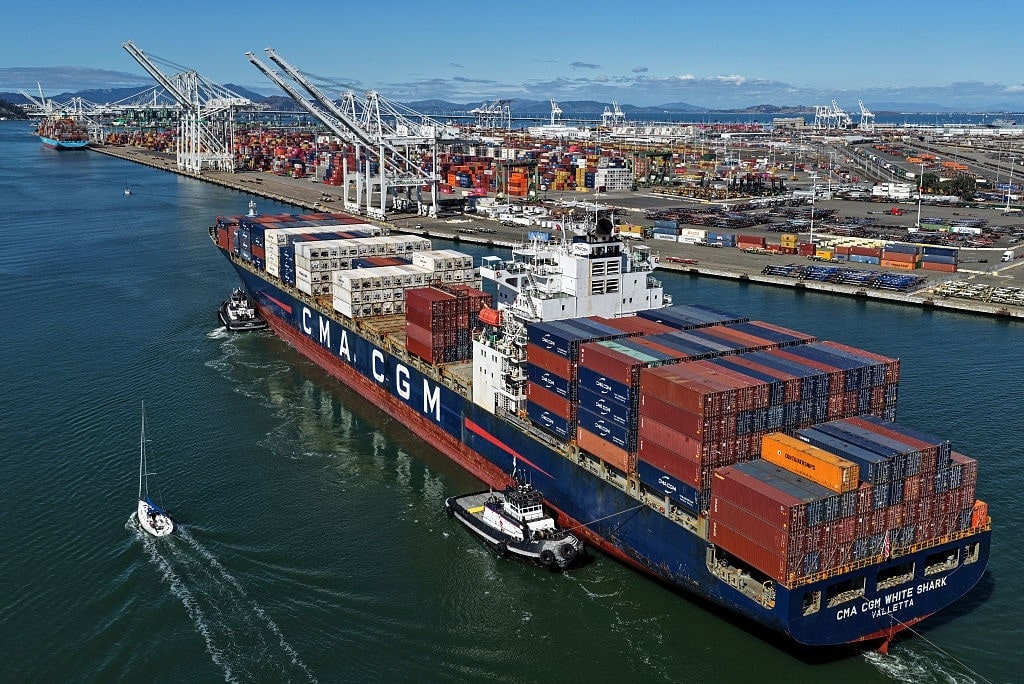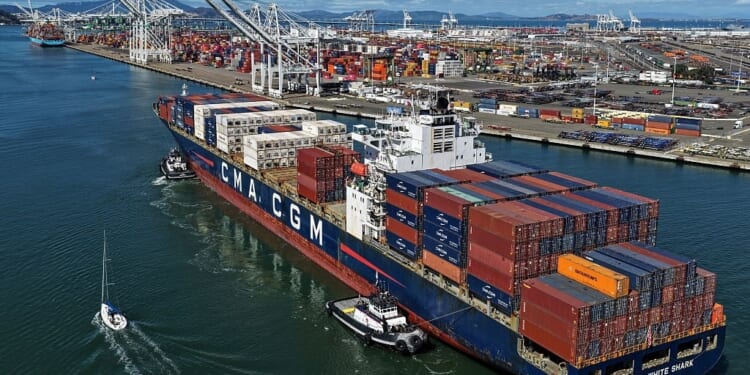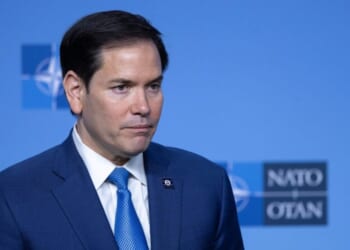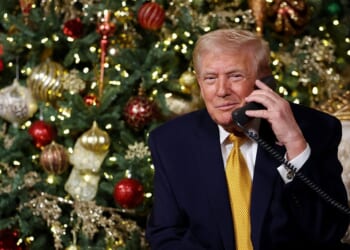
Why the president claims it is “the most important case ever.”
President Donald Trump’s use of tariffs has been one of his most controversial policies, perhaps more fractious than immigration enforcement or using the National Guard to restore law and order in anarchic blue cities. Trump has proclaimed that without tariffs as executive leverage, Congress will not act, and the US economy will implode. The Supreme Court signaled agreement that the issue is of paramount importance by granting the administration’s request for fast-track consideration today (Nov. 5). The president argues this is the “most important case ever” to come before SCOTUS.
The Powers of the Presidency
The dispute arises over the muddy constitutional waters surrounding how much latitude over tariffs is afforded the Executive Branch versus congressional authority in Article 1 of the Constitution to “lay and collect Taxes, Duties, Imposts and Excises.” That sticky wicket is further clouded by how Congress delegates power to the president in the International Emergency Economic Powers Act (IEEPA) to “regulate … importation or exportation” of “property in which any foreign country or a national thereof has any interest” if he declares a national emergency.
The Supreme Court will hear two challenges simultaneously to the presidential power to levy tariffs without prior congressional consent. The first is to “trafficking” tariffs, which targeted products exported from China, Mexico, and Canada because those countries have failed to stop fentanyl traffic into the United States. The second pertains to “worldwide” or “reciprocal” tariffs that vary in percentage depending on tariffs imposed by the target nations that the president alleges constitute an “unusual and extraordinary threat to the national security and economy of the United States.” It is possible the Court could find one use of power constitutional and the other not. It could also block or approve both schemes.
The Supreme Court has not previously considered the presidential power to impose tariffs under IEEPA, though the Court of Customs and Patent Appeals approved its use for this purpose during Richard Nixon’s administration for a “limited” purpose to meet a particular national emergency. This is quantitatively and qualitatively different from a carte blanche approval of pardons for whoever the president wants.
The Record Below
One of the appeals before the Supreme Court originated in the US Court of International Trade (CIT), which set aside the tariffs on May 28, ruling the president lacks unlimited tariff power under the IEEPA, including addressing trade deficits or the fentanyl crisis. The CIT held that the “trafficking” tariffs are invalid because they do not “deal with an unusual and extraordinary threat” but merely seek to create leverage to deal with the fentanyl crisis.
On appeal from that ruling to the US Court of Appeals for the Federal Circuit, a majority (7-4) agreed with the lower court. However, the four-judge dissent was written by a Barack Obama appointee, Judge Richard Taranto, who strongly disagreed, stating:
“IEEPA embodies an eyes-open congressional grant of broad emergency authority in this foreign-affairs realm, which unsurprisingly extends beyond authorities available under non-emergency laws, and Congress confirmed the understood breadth by tying IEEPA’s authority to particularly demanding procedural requirements for keeping Congress informed.”
This closely tracks the government’s argument on appeal to the Supreme Court. Solicitor General D. John Sauer asserted on behalf of the Trump administration that the one-year limitation and “a slew of procedural and reporting requirements that allow Congress to oversee and override the President’s determinations” while granting him explicit authority to “regulate importation.” Sauer also stressed the lack of any Supreme Court precedent addressing the issue in the context of foreign relations, “where Congress presumptively does grant the President broad powers.”
The Importance of Tariffs
President Trump has declared this decision is of great import not only to the impact on the economy but also to his ability to leverage peace negotiations under veiled (or express) threat of imposing tariffs. He suggested at one point that he might attend the Supreme Court oral arguments but indicated on Nov. 2 he would not do so.
The Supreme Court could take some time to decide the cases, and the convoluted issues may result in complex opinions, including potential dissents and concurring perspectives. The outcome will have seismic political, economic, and social impact.
President Trump’s efforts have had an impact on the fentanyl crisis and foreign cooperation, and a loss to the administration could cost lives. On the other hand, many plaintiffs argue that the same tariffs are causing them to lose businesses or pay increased prices. The administration argues that the absence of tariffs results in diminished US competitiveness and jobs shed overseas.
Today’s arguments may offer insights into how the various judges view the posture of the case. Whatever their ultimate determination, the impact will have profound consequences for the nation as well as the Trump administration.
Dig Deeper Into the Themes Discussed in This Article!
Liberty Vault: The Constitution of the United States
Liberty Nation does not endorse candidates, campaigns, or legislation, and this presentation is no endorsement.

















